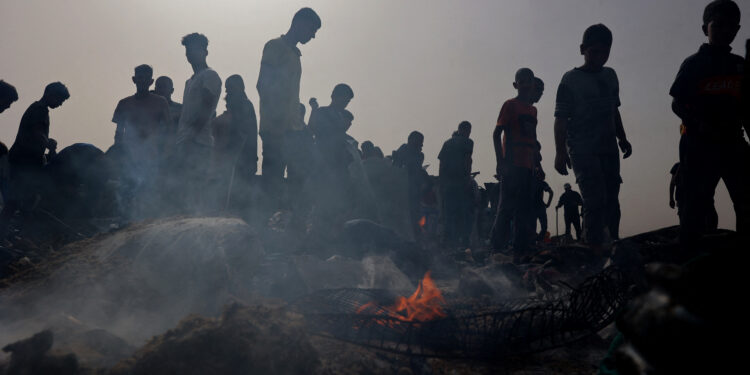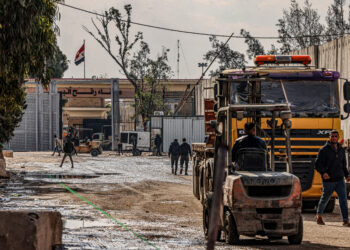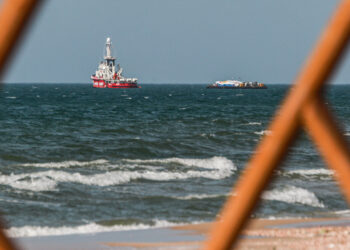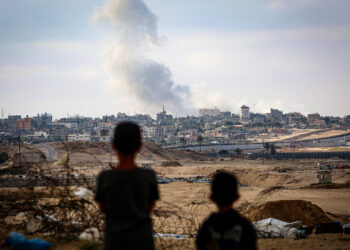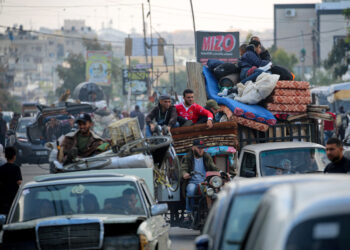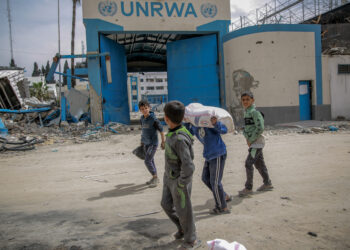Brussels – The killing of at least 45 displaced Palestinians—including several children—in an Israeli bombardment of the Tal-Sultan refugee camp in Rafah “shows that there is no safe place in Gaza.” It “horrifies” the consciences of EU countries to such an extent that the foreign ministers of the 27 unanimously decide that it is time to convene an Association Council with Israel to discuss respect for human rights provided for in the association agreement between Brussels and Tel Aviv.
At the end of two days devoted to the conflict in Gaza, with yesterday’s (May 26) meeting with the Palestinian National Authority’s newly appointed prime minister, Mohammad Mustafa, and the meeting of EU foreign ministers joined today by counterparts from Saudi Arabia, Egypt, Jordan, the United Arab Emirates, and Qatar, the EU High Representative for Foreign Affairs, Josep Borrell appeared at a press conference, his face in gloom. “I want to insist on the horrible news coming from Rafah,” he began, stressing that the Israeli attack came just hours after the order of the International Court of Justice to refrain from any military operation in Rafah.
“For now, what we are seeing is not a stop to military activities, but on the contrary, an increase in bombings and civilian casualties,” Borrell noted. The brazen disregard for the measures demanded by The Hague with which Netanyahu’s government has acted has convinced the 27 to convene an EU-Israel Association Council. To hold the partner accountable for meeting its commitments under the Association Agreement is the first step in its eventual suspension, as the governments of Spain and Ireland had asked over three months ago in a letter to Ursula von der Leyen. Still, the request had so far gone unheeded. 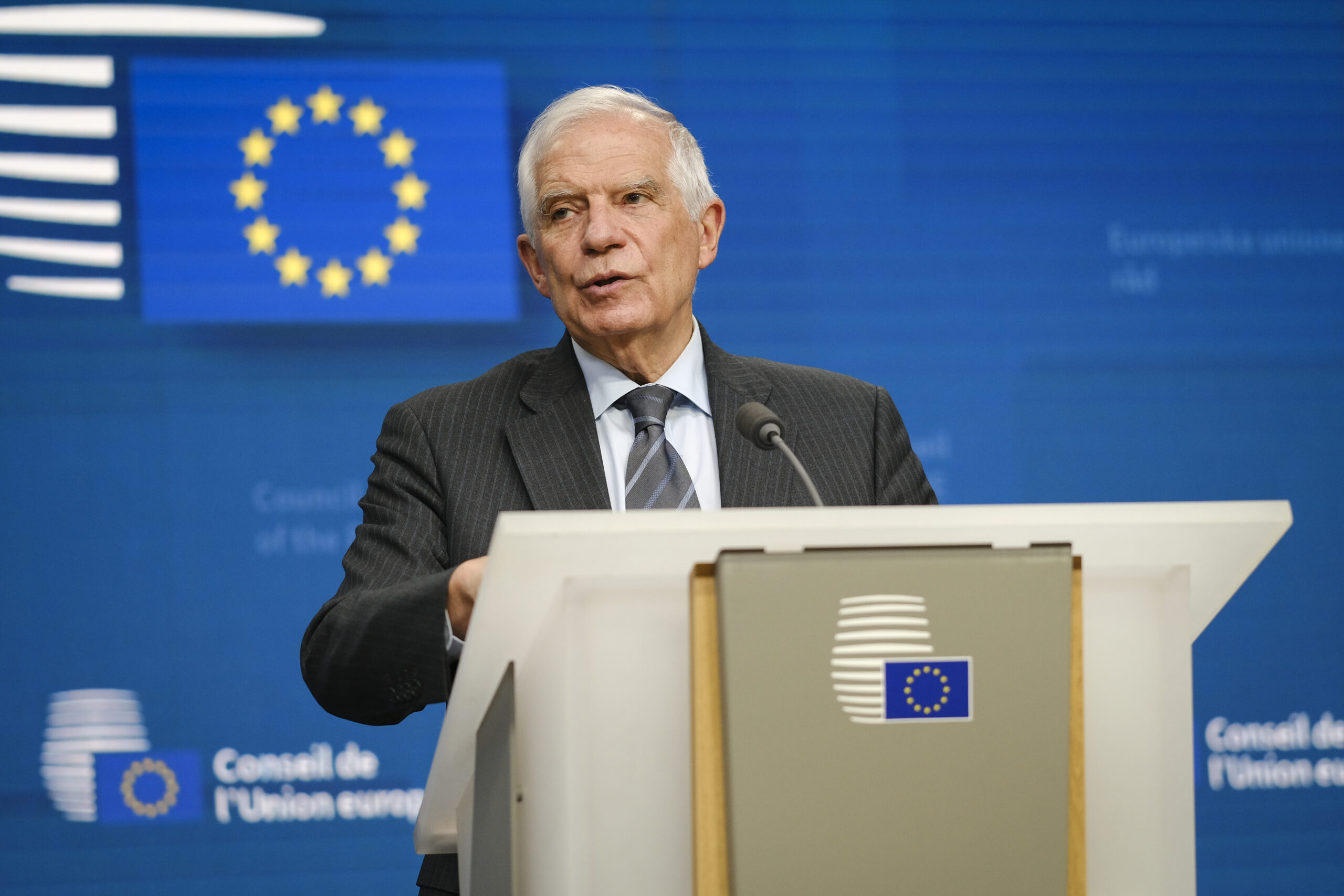
Tomorrow, Madrid and Dublin will proceed to recognize the Palestinian state formally. On the Israeli reaction to the announcement, Borrell commented, “With Spain and Ireland, I would not call it diplomatic escalation, but absolutely unjustified and extreme verbal aggression by the Netanyahu government.”
The European diplomacy chief’s patience with the Israeli prime minister’s choices is at an all-time low. Indeed, Borrell declared that “from now on I will no longer say Israel, but Netanyahu government,” to emphasize even more the responsibilities of Israel’s far-right executive. Which has decided to block the disbursement of taxes it collects in the West Bank for the Palestinian National Authority, resources with which the PNA pays salaries to civil servants and guarantees a minimum of services in an already “boiling” territory. A decision designed “to asphyxiate the PNA economically and financially,” the High Representative again denounced.
With representatives of the Arab countries, the 27 countries tried to envision the day after. The five Middle Easterners have “thrown the gauntlet on the table,” Borrell explained, “now it’s our turn to pick it up. That is, they have presented a kind of peace plan, hypothesizing the organization of an international peace conference on “how to implement the 2-state solution”. A commitment Borrell wants to make, but “until that day, the most important thing is to support the NPA and UNRWA.”
Regarding the UN Relief and Works Agency for Palestinian refugees, Borrell’s third request to the Netanyahu government: “Stop calling it a terrorist organization.” Because Tel Aviv has not provided evidence to its accusations of staff members’ complicity with Hamas, and because without UNRWA, aid distribution to Gaza is unthinkable. This was the last point touched on by the High Representative: “The only thing we can do to facilitate aid is to reopen the EU mission at Rafah,” the mission with which, from 2005 to 2007, the EU managed the passage of goods and people at the Gaza-Egypt border. “We have been asked; the ministers gave me the political green light to reactivate EUBAM Rafah, but it has to be done in agreement with the PNA, Egypt and, of course, Israel.”
English version by the Translation Service of Withub